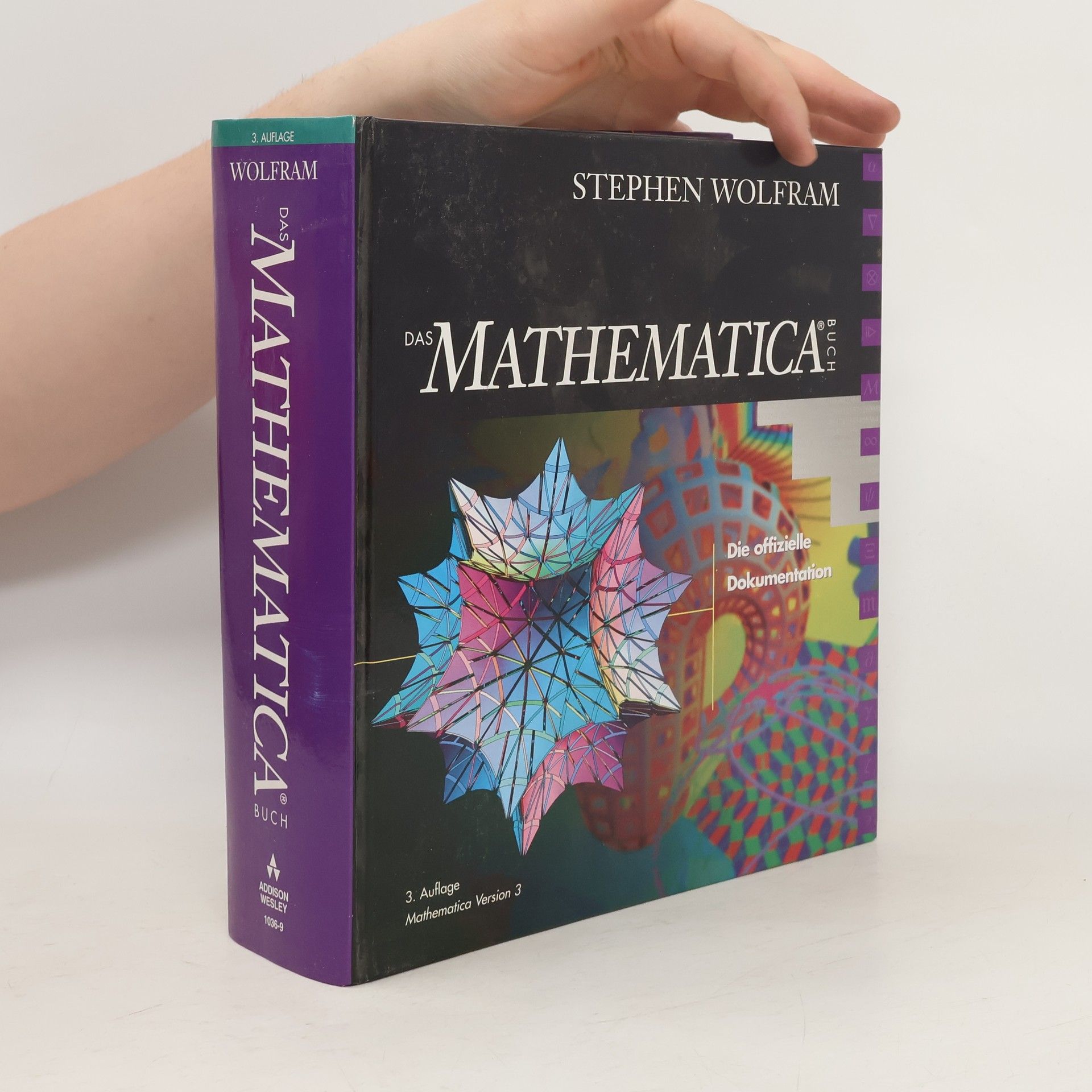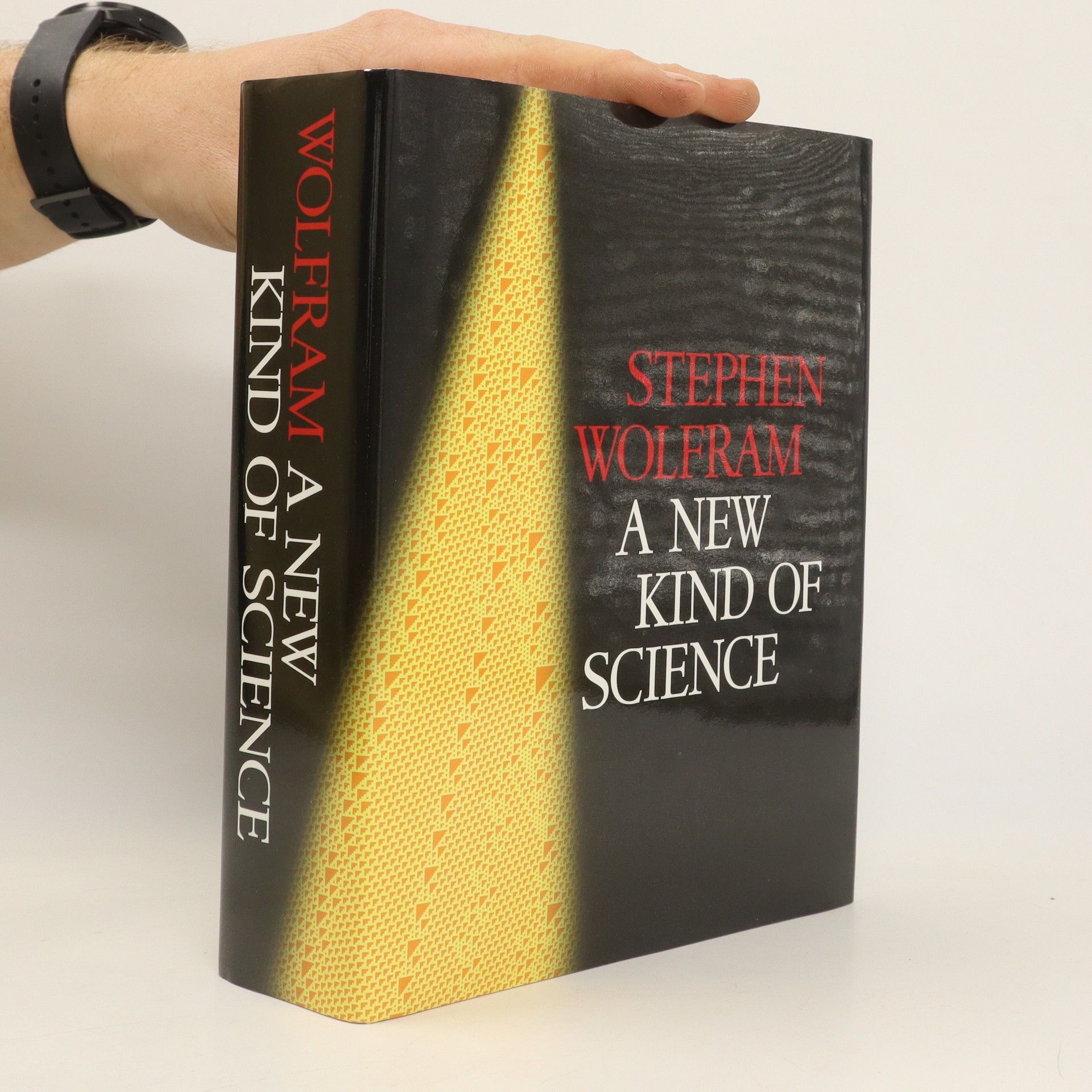Stephen Wolfram diskutiert die Auswirkungen der Mathematisierung auf die Wissenschaft und schlägt vor, Naturvorgänge eher als Computerprogramme denn als Differentialgleichungen zu betrachten. Im Gespräch mit Dietmar Dath erläutert er seine Entdeckungen und deren Bedeutung für verschiedene Disziplinen wie Evolutionsbiologie und Kognitionsforschung.
Stephen Wolfram Bücher
Stephen Wolfram ist ein visionärer Denker, der für seine tiefgreifende Erforschung der Natur der Berechnung und ihres Potenzials zur Neugestaltung unseres Weltverständnisses bekannt ist. Seine Arbeit konzentriert sich auf die Aufdeckung einfacher, universeller Prinzipien, die Komplexität in natürlichen und künstlichen Systemen steuern. Wolfram untersucht, wie unerwartete und weitreichende Ergebnisse aus diesen grundlegenden Regeln abgeleitet werden können, wodurch eine elegante Struktur unter verschiedenen Phänomenen aufgedeckt wird. Sein Ansatz ermutigt zur Neubewertung wissenschaftlicher Grundlagen und zur Entdeckung verborgener Verbindungen zwischen scheinbar zusammenhanglosen Bereichen.






Mathematica
- 993 Seiten
- 35 Lesestunden
Das Geheimnis hinter ChatGPT
Wie die KI arbeitet und warum sie funktioniert
An Elementary Introduction to the Wolfram Language
- 376 Seiten
- 14 Lesestunden
As the world's first and only full-scale computational language, the Wolfram Language represents a milestone in the development of programming languages that makes leading-edge computation accessible to everyone. Unique in its approach of building in vast knowledge and automation, the Wolfram Language scales from a single line of easy-to-understand interactive code to million-line production systems.This book provides an elementary introduction to the Wolfram Language and modern computational thinking. It assumes no prior knowledge of programming, and is suitable for both technical and non-technical college and middle-to-high-school students as well as anyone with an interest in the latest technology and its practical application.
Written by the creator of the system, The Mathematica Book includes both a tutorial introduction and complete reference information.
Combinators
- 368 Seiten
- 13 Lesestunden
"Combinators have inspired ideas about computation ever since they were first invented in 1920, and in this innovative book, Stephen Wolfram provides a modern view of combinators and their significance. Informed by his work on the computational universe of possible programs and on computational language design, Wolfram explains new and existing ideas about combinators with unique clarity and stunning visualizations, as well as provides insights on their historical connections and the curious story of Moses Schèonfinkel, inventor of combinators. Though invented well before Turing machines, combinators have often been viewed as an inaccessibly abstract approach to computation. This book brings them to life as never before in a thought-provoking and broadly accessible exposition of interest across mathematics and computer science, as well as to those concerned with the foundations of formal and computational thinking, and with the history of ideas"--
Starting from a collection of simple computer experiments—illustrated in the book by striking computer graphics—Stephen Wolfram shows how their unexpected results force a whole new way of looking at the operation of our universe.Wolfram uses his approach to tackle a remarkable array of fundamental problems in science, from the origins of apparent randomness in physical systems, to the development of complexity in biology, the ultimate scope and limitations of mathematics, the possibility of a truly fundamental theory of physics, the interplay between free will and determinism, and the character of intelligence in the universe.
Exploring the enigmatic Second Law of thermodynamics, Stephen Wolfram delves into its historical context and significance, revealing how it emerges from computational processes. Drawing on recent advancements in physics, he presents a clear resolution to its mysteries, linking the law to our role as observers. With a personal narrative spanning five decades, the book is richly illustrated and offers insights into the foundational principles of science, making it accessible to anyone curious about this pivotal concept.
The book explores the fascinating history of predicting solar eclipses, culminating in the upcoming event on April 8, 2024. Stephen Wolfram details a journey spanning over two millennia, showcasing how advancements in science, mathematics, and computation have enabled precise predictions. It highlights significant contributions from renowned mathematicians and physicists, the development of early computing, and the impact on space technology. The narrative emphasizes the evolution of understanding eclipses, a phenomenon that has captivated humanity throughout the ages.
